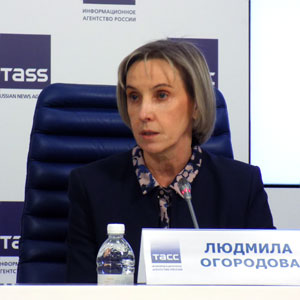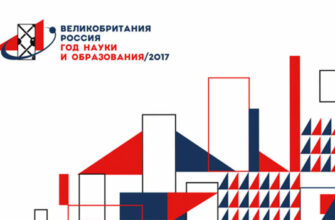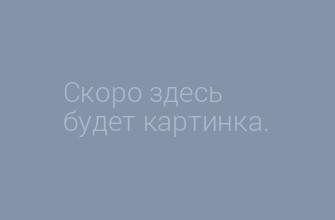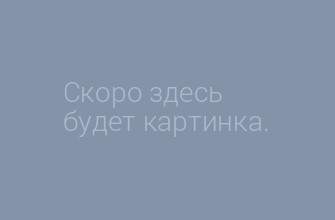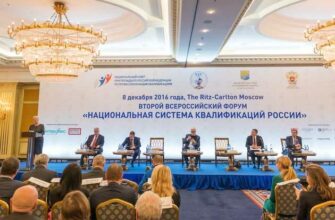The Ministry of Education and science of the Russian Federation is reforming the education system in the country. Looking at their activities, we pay attention to the areas in which the country requires scientific thought. Following pleasant moments can be noted: 444 Russian Universities will receive 2.9 billion rubles for the studies in certain areas for which research grants are distributed throughout the country.
As for the Humanities, at first glance, they are supported by very few, and mainly relate to the study of small peoples and migration processes.
Cultural-political magazine “E-Vesti” addressed to the Deputy Minister of education and science Lyudmila Ogorodova to find out whether theMinistry pay its attention to development of the Humanities.
Lyudmila Mikhailovna in an interview said the following: “First of all, we had the order of the President on the development of so-called multidisciplinary technologies, which as a part have humanitarian knowledge. Now the figure determines the dynamics of the development of new scientific knowledge, the effectiveness of its development is also a figure. The figure is a language and that language is Humanities.
Secondly, of course, it is important to pay attention to new technologies that are being introduced today. In the world 70% of the structure of science is dedicated to the quality of life and the science of life. This means that most of the new technologies apply to humans. But the technology is so advanced that its use on human beings ahead of our understanding about how can we apply it for a person. For example, do we have the humanitarian right to edit the genome, can we change the gene of the child, which we carry to make him a blue-eyed, or can we recreate a man? For example, let’s take drones. In the case that this drone will make a crash, where the legal, humanitarian knowledge about whom to blame? And so on. I believe that the Humanities has become an integral part of the structure of the new scientific knowledge.
The ethical issue of the Russian Humanitarian Scientific Fund (RHSF) has become great in the number of experts and expert councils, and the Russian Science Foundation (RSF), too, pays it attention now. We fulfilled the order of the President to research on convergent, interdisciplinary technologies, and wrote the report about it. We included it the list of priorities. Look at the latest decrees, orders. It remains only to develop an appropriate financial mechanism.”
An important area of support science is to support universities. We recently wrote that Saint-Petersburg and Moscow universities have the right to consider thesis according to own rules.
We have asked Lyudmila to tell our readers about the activities of the Ministry of education to reform the forms of scientific knowledge, and hot the Ministry consider the experience of leading Universities (Oxford, Cambridge) for the purpose.
“We are studying forms of the development of science – said she, – what are the formats of today’s science, what are its priorities. To answer to these questions, to inspect, to examine, we look towards the leading educational and scientific institutions.
Oxford and Cambridge share with us the work efficiency. I think they will have a name and great education style at all times. In these schools the principle of conservatism provide very high requirements, professionalism and knowledge. Apparently, that allows them to remain leaders in science, stable and sustainable. Of course, they are organizations whose experience we studied.
Their scientific experience is interesting, they lead in topics relating to, for example, antibiotics and infections. The Cambridge differs from Oxford that it introduces and comercializare knowledge, creates a real technology. Its experience creating innovative tools, efficiency is also very important for us.”
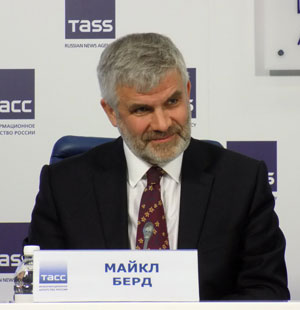
At the same time, Russia’s position in some aspects of scientific knowledge are also strong according to British experts. In an interview with “E-Vesti” the Director of the British Council in Russia Michael Bird said «Russia is very good at producing mathematician; people know things, so it is very good producing scientists. And it is very good producing mathematician and very good producing people who do things with IT. I think it is phenomenal quantitatively and qualitatively. It is very striking.
And what we do in Britain, I think we probably good producing people who think critically and descent and challenge and don’t exact at whole. It is some sort of tradition of independent thinking and challenging orthodoxy. And we don’t need to producing people know things.
I’ve never started British history. I probably know more about Russian history than I know British history. Because we’ve never did British history in school. I saw we like to do. I certainly know Russians know more British history than we did. I think I’m really respecting the value that Russia place on knowledge. This makes a sense.».
Source: Russian Ministry of Education and Science
